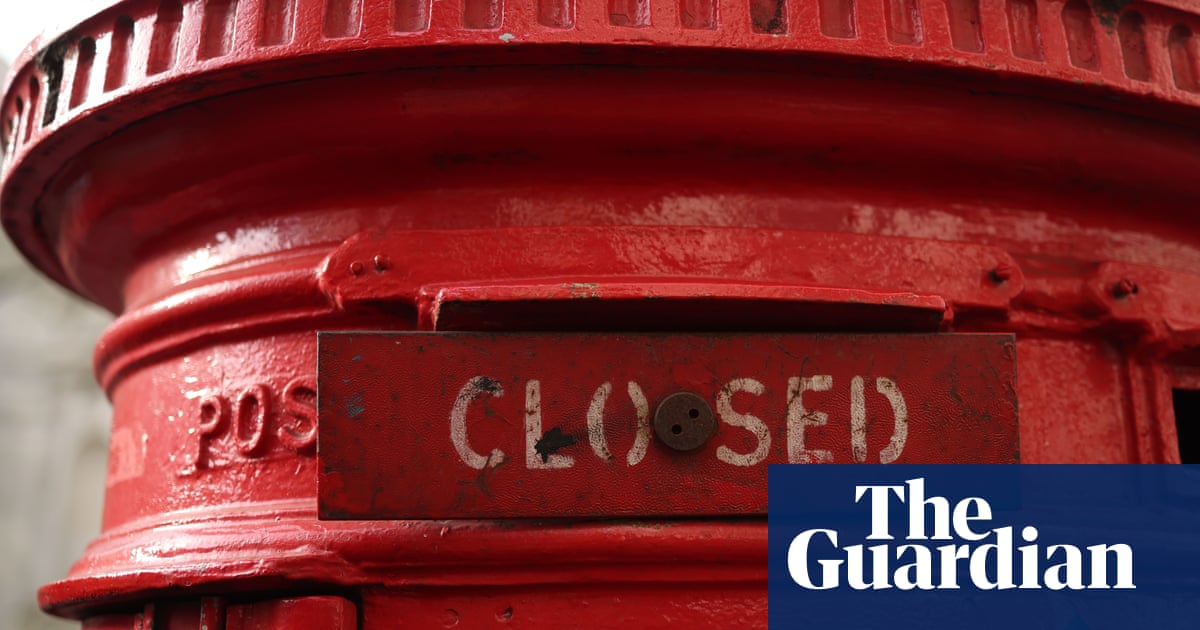
Aditya Chakrabortty’s scathing account of Royal Mail’s decline is accurate and justified (So this is how the Royal Mail ends: killed by lying politicians, lousy managers and ruthless moneymen, 1 February). A major contributor to the company’s demise is the corporate governance framework within which it operated: a group structure with diversified and disengaged shareholders, a dominant boardroom presiding over an ineffective remuneration committee, and stakeholder engagement that failed to take account of the competing interests of different constituent groups, with little regard for the impact of the demands made of employees.
Sadly, the UK appears to take pride in its liberal regulatory corporate governance framework, which ensures that shareholder value is the guiding force. This has resulted in a board that has destroyed trust, a shareholder body content to accept financial returns without holding the board to account for fundamental failings, and a workforce that has been treated with contempt.
Prof Charlotte Villiers
University of Bristol Law School
How depressingly brilliant is Aditya Chakrabortty’s description of the decline of Royal Mail. To be part of a society in decline is dispiriting. Our reaction to a situation that seemingly can’t be changed is to accept it with resignation, as he describes.
If we try to understand why our situation doesn’t change, we might look at the people who are doing well out of it – the small group who have been enriched rather than impoverished by all that has happened in recent decades. They don’t want it to change. and their wealth can go a long way to ensuring that it won’t.
Can the knowledge that, for example, Royal Mail shareholders have received £2bn in payouts in the past 10 years, while we have endured the loss of a reliable service, empower us? Only if we have political leaders who can overcome their fear of the rich and powerful. Knowledge alone is, sadly, not enough. But it is a start.
Jeanne Warren
Garsington, Oxfordshire
Aditya Chakrabortty’s piece makes depressing reading. What we need to know is how a business with royal in the title is allowed to fall into private hands when we live in a constitutional monarchy? We pay for the royals and they put their title to national institutions. Our king has his image on stamps to endorse the service. What sleight of hand has enabled significant influence over Royal Mail, still using that name, to be given to a Czech billionaire – Daniel Křetínský of the Vesa Equity Investment Group?
Teresa Rodrigues
Crediton, Devon
“This is how the Royal Mail ends” – yes, but there is a lesson here. First they came for the water, but I said nothing because I wasn’t worried about water. Then they came for the parks, but I said nothing because I wasn’t worried about the parks. Then they came for the Royal Mail, but I said nothing because I wasn’t worried about the Royal Mail. Then they came for the NHS, and Rachel Reeves said that we couldn’t afford it right now. Then I got worried.
Dr Nigel Mellor
Newcastle upon Tyne
About 30 years ago, a friend in rural Oxfordshire posted a letter at 4.45pm to me at my then address in Highland Perthshire. It arrived at 10.15am the next day. Learning of this efficiency, my friend wrote to the cabinet minister responsible for Royal Mail, Michael Heseltine, to tell him and to ask how this service could be improved by privatisation. He received no convincing reply. As Aditya Chakrabortty’s piece demonstrates, that was because there wasn’t one. There still isn’t.
Prof Alan Alexander
Edinburgh












